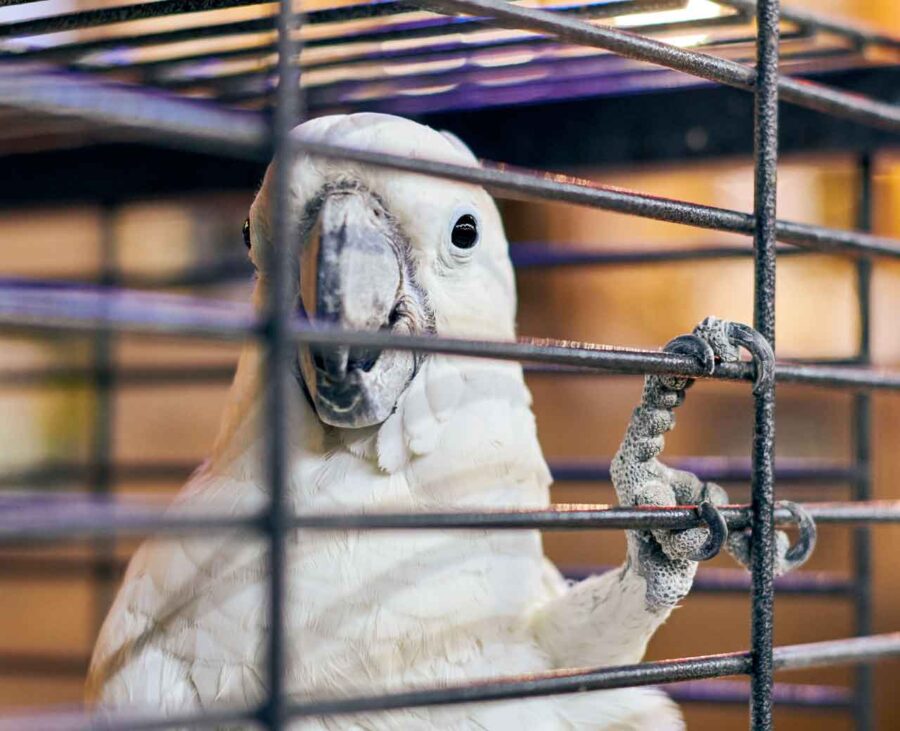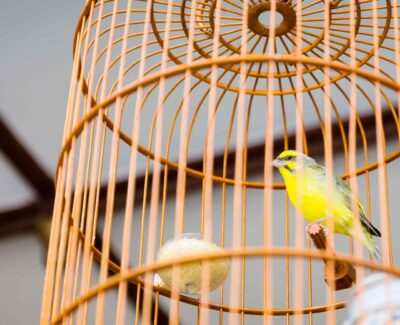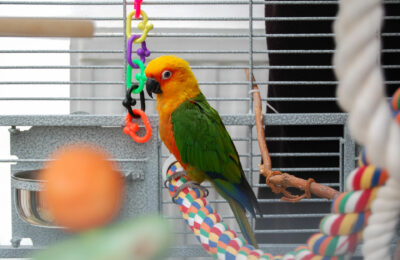
How to Tell if Your Bird is Bored (and What to Do About It)
Just like humans, birds require mental and physical stimulation in order to stay happy and healthy. In the wild, birds spend their days foraging, flying, and socializing. Pet birds, on the other hand, may become bored when they’re left alone for too long, don’t have enough to do, or don’t get enough interaction—potentially leading to behavioral issues, stress, and even health problems.
Read on to learn how to tell if your bird might be bored—and what you can do to help.
Signs of Boredom in Pet Birds
While your bird may not show signs of boredom at first, you may begin to notice behavioral changes over time. Be sure to watch for signs such as:
Feather plucking or over-preening
This may indicate stress, frustration, or a lack of stimulation. If you notice bald spots or damaged feathers on your bird, boredom could be to blame—though it’s always advisable to rule out medical issues with an avian vet.
Screaming or excessive vocalization
Some noise is normal, but if your bird seems to scream constantly or at odd times, they may be trying to get your attention.
Lethargy or sleeping too much
Birds that are under-stimulated may become unusually quiet or spend more time sleeping than usual.
Destructive behavior
A bird that is bored may engage in behaviors like chewing on cage bars, flinging food, or tearing up perches and toys more quickly than normal.
Pacing or repetitive movements
If your bird is pacing back and forth, swinging their head, or rocking repeatedly, it could indicate boredom or anxiety.
Staying attuned to these signs is crucial, as boredom can lead to a variety of long-term behavioral and health problems in birds, including depression, self-harm, aggression, and a weakened immune system. Since birds are intelligent and social creatures, they need regular enrichment and connection in order to thrive. If you notice any sudden signs of boredom, it’s best to consult an avian veterinarian.
How to Keep Your Bird Engaged
The good news is that it doesn’t take a total lifestyle overhaul to help your bird stay mentally stimulated. Try some of these boredom-busting ideas:
Rotate toys frequently
Birds can lose interest in toys that never change. Therefore, keep a stash of toys and rotate them every few days to keep things fresh. Foraging toys, shreddables, and puzzle toys are especially helpful for mental stimulation.
Add foraging opportunities
In the wild, birds spend hours each day searching for food. Try hiding treats in paper cups, wrapping food in safe materials like coffee filters, or using toys that require your bird to work for a reward.
Provide out-of-cage time
Safe, supervised out-of-cage time is essential for exercise and exploration. Create a bird-safe space where your feathered friend can stretch their wings and explore new surroundings.
Interact regularly
Talk, whistle, sing, or spend time near your bird’s cage. If your bird enjoys handling, try teaching them tricks or offering training sessions using positive reinforcement.
Offer environmental variety
Try moving the cage to a different room for a change of scenery (just make sure that it’s still safe and draft-free), or add a window perch so your bird can watch the outdoors.
Keeping your bird happy and engaged is all about offering variety, interaction, and opportunities for natural behaviors. With a few small changes to your daily routine, you can make a big difference in your pet’s overall well-being.
Curious about which enrichment ideas are best for your bird’s species and age? Explore our overviews of different types of birds, including tailored, downloadable enrichment plans!





